Develop your own self-funded PhD proposal
If you have your own research idea, we can help you to develop it. To begin this process you will need to find a PhD Supervisor from one of our research groups, whose research interests align with your own.
Supervisor
Professor John Quinton
What are you doing now?
I hold a 75th Anniversary Research Fellowship at Cranfield University
Why did you choose to study at Lancaster?
I applied for a PhD in the STARS CDT. The project that captured my interest and enthusiasm was one based on rates of soil formation, with John Quinton at LEC.
What was your favourite part of studying a PhD at Lancaster and why?
I most enjoyed the many opportunities to engage with similar (and dissimilar) research in LEC, building partnerships, collaborations, and life-long friends.
How do you think your time at Lancaster has prepared you for what you are doing now?
My PhD at Lancaster, and the long-term collaborative relationships that I created during my time at Lancaster, were the foundations for a Fellowship application to Cranfield University. Over the course of my three years at Lancaster, I was given so many opportunities to network with people within and beyond my research topics, take on teaching responsibilities, learn from and inspire others, transform my skillsets, and strengthen my international research profile.
What did you enjoy most about your time at Lancaster?
I will always fondly look back upon my time at Lancaster as a truly evolutionary period of my life. Thanks to the Lancaster University community, I feel I am now equipped with a reservoir of experience, skills, and networks to make an impact in the world. I cannot single out any specific moment or aspect, apart from saying that I will miss the warmth, generosity and goodwill of the Lancaster community. Only when one moves away, as I have done, can one truly appreciate the rather special and unique ‘community feel’ of the institution, where faculties feel like villages, departments feel like homes, and colleagues feel like family.
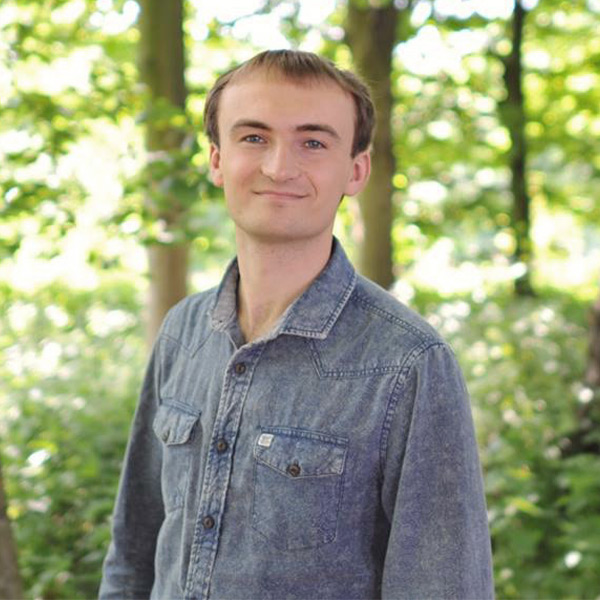
Supervisors
Dr Zheng Zhou, Dr Greg Holland, Professor Yunpeng Wang, Dr Ben Surridge and Dr Peter Wynn.
How do you describe your work to a non-scientist friend?
I study the behaviour and role of fluids deep in the Earth by applying pioneering analytical techniques concerning both geology and chemistry.
Which part of your research work excites you most?
My research lets me pursue the answers to complex questions which are still not well understood, I can focus on something I am truly passionate about, while also becoming an expert in that field.
What drives or inspires your best work?
I am driven by a childlike sense of curiosity to delve deeper into the Earth's history and investigate what is going on beneath its surface.
What does 'pushing the boundaries' of your subject mean to you?
I want to develop new ideas; I like to challenge assumptions and venture further into the unchartered territories of human knowledge in my subject area.
What is the greatest idea you’ve had while your mind was wandering?
One of the most fulfilling ideas I’ve had was to start documenting my experiences as a researcher abroad at my website, through my love for filmmaking I also produced a video about Guangzhou on YouTube with around 500,000 views.
What PhD life skills are rarely taught but extremely useful?
Following strict deadlines and employing grit and determination toward achieving a challenging long-term project, that is mostly carried out alone.
What is the best lesson you’ve learned from someone you’ve worked with?
Spending a large part of my PhD at the Chinese Academy of Sciences in China, amongst researchers in a foreign environment with a distinctive culture has given me a novel approach to problem-solving.
If you could give one piece of advice for the future to PhD students, what would it be?
A PhD is a deeply personal undertaking, your passion for your research topic and determination to seek out the truth will be what gets you through it.
Any other comment?
Through my PhD at Lancaster and in China, I have been able to join an exciting research environment, advance my Mandarin Chinese to a proficient level, present at conferences worldwide and cultivate links with researchers with diverse backgrounds.
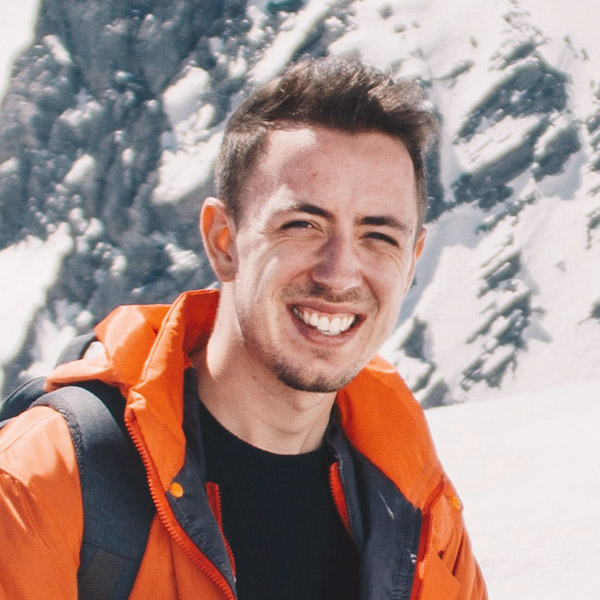
Supervisors
Dr Sally Keith and Dr Ian Hartley (Lancaster). Dr Adam Algar (Nottingham)
How do you describe your work to a non-scientist friend?
I am interested in the role of individual differences in behaviour (or 'personality') plays in enabling reef fish, specifically butterflyfish, to persist under the condition to declining coral cover on reef ecosystems.
Which part of your research work excites you most?
Even though my work focusses on individual behaviour, the applications of my research are broad, combining disciplines such as behavioural ecology, adaptation environmental change, and even game theory!
What drives or inspires your best work?
I get to work in some incredible parts of the world, meeting incredible people with rich and diverse cultures, whilst researching and diving on coral reefs doing what I love.
What does 'pushing the boundaries' of your subject mean to you?
Animal personality research is an area of some controversy, so for me, 'pushing the boundaries' means identifying gaps in this research area in a controversial area and attempting to fill them!
What is the greatest idea you’ve had while your mind was wandering?
From a research point of view, finding a way to combine butterflyfish behavioural observations and experimental manipulations in the field rather than under laboratory conditions, a relatively rare occurrence in animal behavioural research!
What PhD life skills are rarely taught but extremely useful?
Finding a successful work/life balance!
What is the best lesson you’ve learned from someone you’ve worked with?
Identify every milestone, no matter how small, and reward yourself for reaching it.
If you could give one piece of advice for the future to PhD students, what would it be?
Embrace every opportunity!
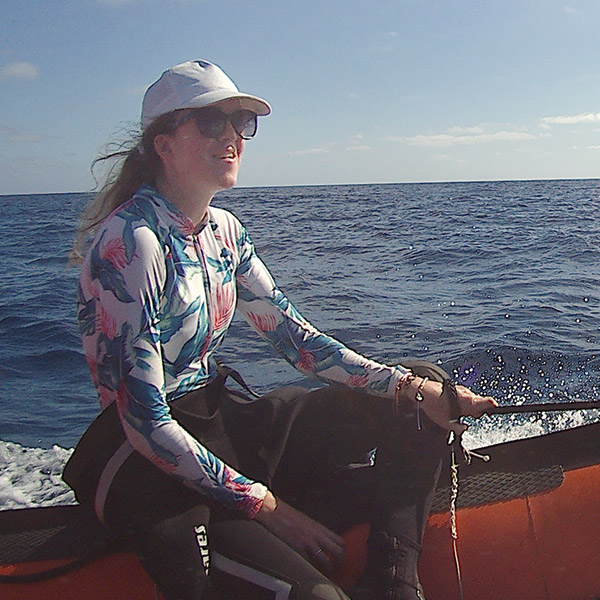
Supervisors
Nick Graham, Magnus Nyström and Jos Barlow.
How do you describe your work to a non-scientist friend?
I investigate and confront processes that keep coral reefs locked in degraded conditions – called feedback processes.
Which part of your research work excites you most?
The variety that research brings is the best; you get to think deeply, write, travel, collaborate, and more – it never gets boring.
What drives or inspires your best work?
A well-structured plan and good coffee.
What does 'pushing the boundaries' of your subject mean to you?
Figuring out how beneficial well-managed mosaic-habitat reefscapes – a reef made up of small interconnected patch habitats (e.g. coral, seaweed, sponges, seagrass) – could be to humans.
What is the greatest idea you’ve had while your mind was wandering?
Cutting off the back of the tube to get the last of the toothpaste out – life-changing.
What PhD life skills are rarely taught but extremely useful?
Effective science communication.
What is the best lesson you’ve learned from someone you’ve worked with?
From Nick, my primary supervisor: create the figures to your publications or thesis first and then write around them – really helps to get more succinct writing faster.
If you could give one piece of advice for the future to PhD students, what would it be?
Save loads of time for tasks you have to improve at (e.g. writing) and get through tasks you are good at (e.g. fieldwork) more quickly – with that in mind, start working hard early in your PhD; it makes the end more manageable.
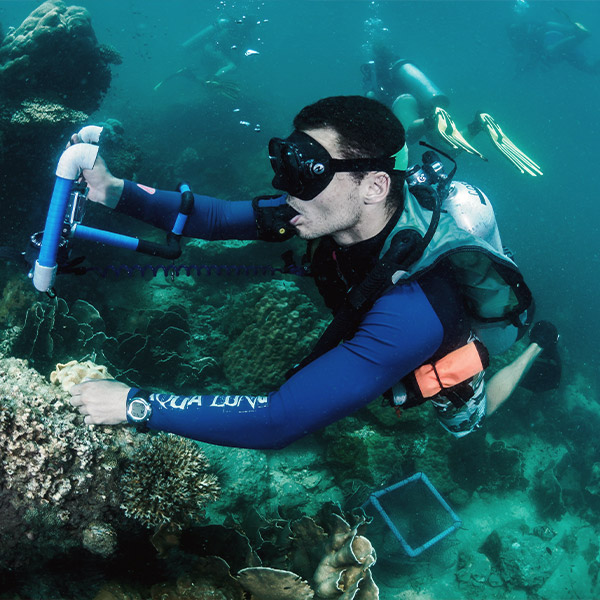
Supervisors
Professor Kirk Semple, Professor Roger Pickup, Professor Ian Dodd and Professor Alastair Martin
How do you describe your work to a non-scientist friend?
I am a microbiologist aiming to develop fertilisers that are free of harmful microorganisms, from our everyday organic wastes, by treating them in the absence of oxygen and other unfavourable conditions.
Which part of your research work excites you most?
Identifying different isolates of potentially pathogenic species on selective culture media.
What drives or inspires your best work?
Getting positive experimental feedbacks, such as seeing that a chosen treatment condition has been optimised in the anaerobic digester and working well for pathogen elimination.
What does ‘pushing the boundaries’ of your subject mean to you?
Discovering the molecular mechanism of pathogen survival when exposed to different environmental stress.
What is the greatest idea you’ve had while your mind was wandering?
Designing a miniature microscope that can be worn like a pair of glasses.
What PhD life skills are rarely taught but extremely useful?
Resilience, critical thinking, time management, self-motivation and confidence.
What is the best lesson you’ve learned from someone you’ve worked with?
The faintest pen is better than the sharpest memory, have a detailed written note of important occurrences and findings!
If you could give one piece of advice for the future to PhD students, what would it be?
Not everything deserves your time and attention, separate what is important from what is not, and focus on achieving your goals.
Any other comment?
A PhD experience is an exciting roller coaster journey to the world of knowledge, it is better witnessed than being told!
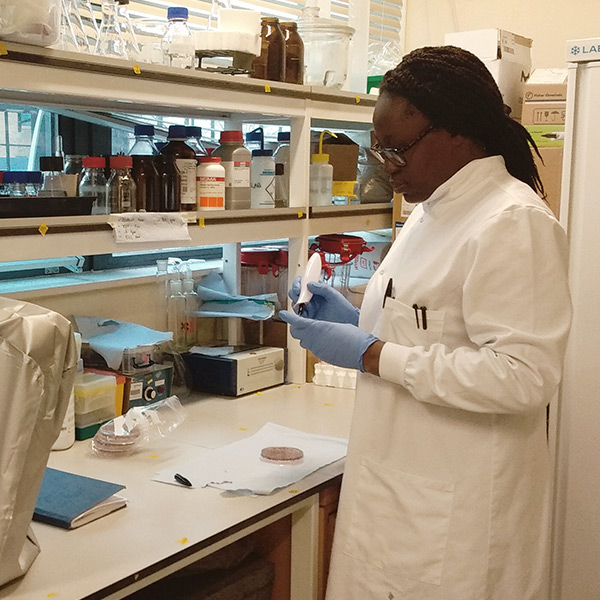
Supervisors
Professor Nick Graham, Professor Christina Hicks, Associate Professor Aaron MacNeil (Dalhousie University)
How do you describe your work to a non-scientist friend?
My research investigates how degraded coral reefs affect small-scale reef fisheries in the tropics.
Which part of your research work excites you most?
Being able to travel to unique locations to do SCUBA surveys of reef habitats and collect socioeconomic information from local fishing communities.
What drives or inspires your best work?
Having a deep interest in what I’m researching and knowing that the outcomes will contribute to a better understanding of the topic – in my case, this could lead to more effective fisheries management on degraded coral reefs.
What does ‘pushing the boundaries’ of your subject mean to you?
Doing something that hasn’t been done before to answer an important research question.
What is the greatest idea you’ve had while your mind was wandering?
Applying habitat mapping techniques from a study involving Inuit hunter participants to my research in a tropical setting with artisanal fishers.
What PhD life skills are rarely taught but extremely useful?
Organising information (such as your ideas, references, datasets, supervisor comments) in a way that clearly links everything together and that you can refer back to when you need to(also making good use of calendar reminders via your email!).
What is the best lesson you’ve learned from someone you’ve worked with?
Work out the concepts of your research questions first, before focusing on the finer details, such as study location and technicalities/logistics of the methods.
If you could give one piece of advice for the future to PhD students, what would it be?
The first several months of your PhD involve learning more about your topic and formulating ideas – don’t worry if you don’t know exactly what you want to do straight away and keep checking in with your supervisor(s).
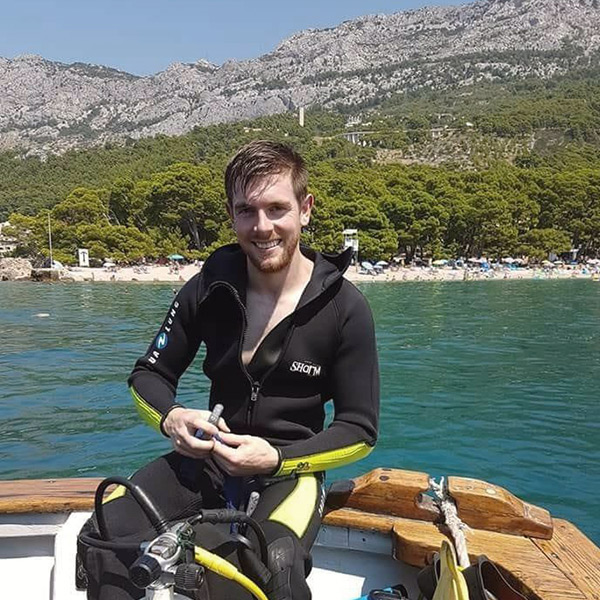
Supervisors
Ben Neimark (LEC) & Mark Lacey (Politics, Philosophy & Religion)
How do you describe your work to a non-scientist friend?
In the shadow of climate change, demonstrating ways that diminishing critical natural resources (freshwater, arable land etc) won’t necessarily lead to transboundary conflict and violence, but instead can be used as tools for peace and cooperation around shared resource conservation. And cuddling baby gorillas.
Which part of your research work excites you most?
That environmental resource conservation can be a motivator for peace. Getting to work in the transboundary gorilla parks in DRC, Rwanda and Uganda.
What drives or inspires your best work?
Preventing conflict and the creation of climate refugees in the onrushing ecological collapse.
What does 'pushing the boundaries' of your subject mean to you?
Challenging international environmental security policy discourse that assumes that resource scarcity will automatically lead to violence and conflict between competing actors.
What is the greatest idea you’ve had while your mind was wandering?
That Karl Marx’s "From each according to his ability…" must be applied to create the most harmonious and successful loving relationship.
What PhD life skills are rarely taught but extremely useful?
To challenge all preconceived assumptions, politically, socially, and personally, to ask ‘Why?’ something is like it is.
What is the best lesson you’ve learned from someone you’ve worked with?
If it all gets too much, have a lie down in a dark room for a while.
If you could give one piece of advice for the future to PhD students, what would it be?
Read widely, don’t panic, be kind to yourself, enjoy the process.
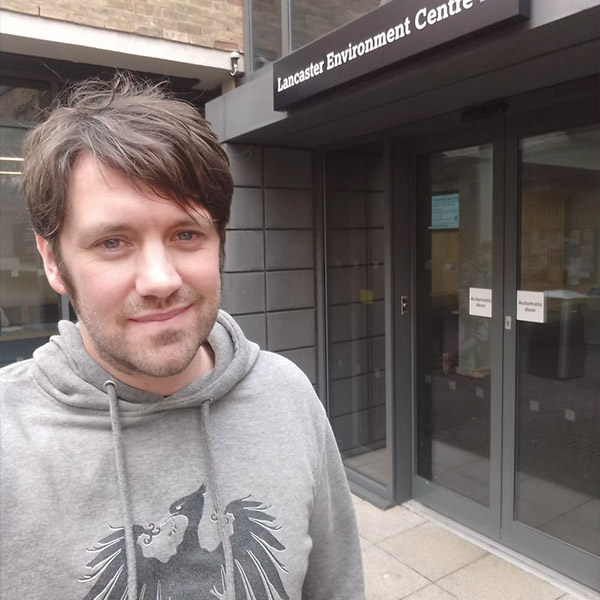
Supervisors
Mike Roberts and Gabriela Toledo
How do you describe your work to a non-scientist friend?
Understanding the effects of certain compounds on the defence mechanisms in plants.
Which part of your research work excites you most?
Utilising Mexican native plants to develop better defence inducers for crops, hopefully, making better and more environmentally friendly compounds, while meeting different agricultural needs.
What drives or inspires your best work?
Making my family proud of my work, while making a bit of difference in our world.
What does 'pushing the boundaries' of your subject mean to you?
Thinking that a positive result with these natural compounds might make our world a little better.
What is the greatest idea you’ve had while your mind was wandering?
I have had 2 great ideas, sadly I have not had the drive to execute either one of them. Making paper from citric peels and residues as a substitute for the regular printing paper is the one I am currently working on, the second one is still a secret, we will see if either one ever comes true.
What PhD life skills are rarely taught but extremely useful?
Project management, as a researcher being able to plan your experiments, writing and projects is one of the things that most PhD students underestimate but is probably one of the most useful things we can ever learn to do correctly.
What is the best lesson you’ve learned from someone you’ve worked with?
Always do your best, whatever job you are doing.
If you could give one piece of advice for the future to PhD students, what would it be?
Do not stress, the PhD is just another stage in your life. It will come to an end sooner than expected and any illness or ailment caused by stress will not be worth anything.
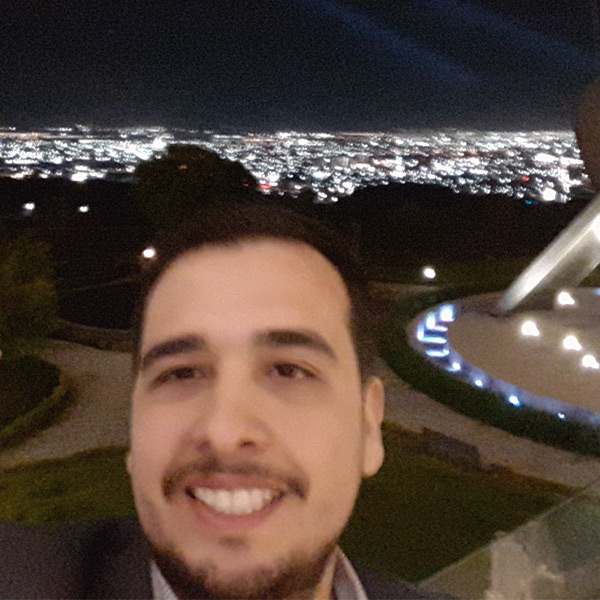
Studying for a research degree is a highly rewarding and challenging process. You'll work to become a leading expert in your topic area with regular contact and close individual supervision with your supervisor.
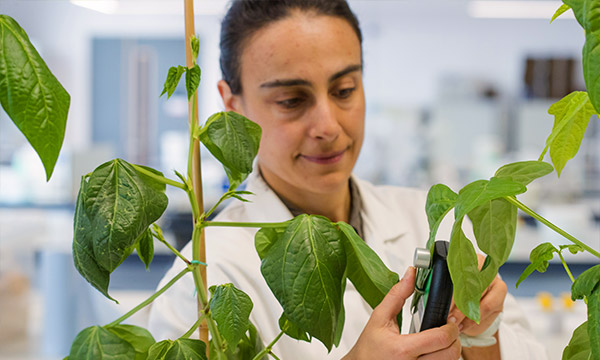
If you have your own research idea, we can help you to develop it. To begin this process you will need to find a PhD Supervisor from one of our research groups, whose research interests align with your own.
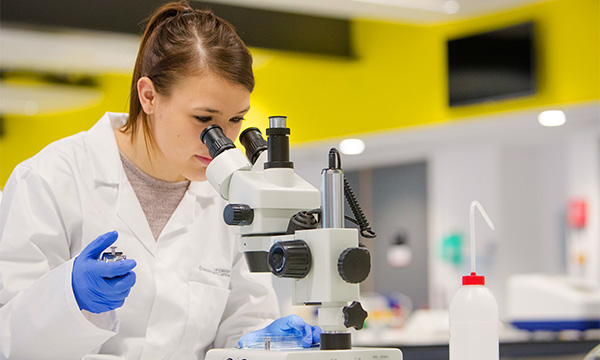
Every year we offer a range of PhDs funded by a number of different sources, including research councils, industries or charities. Browse the list of latest funded opportunities here.
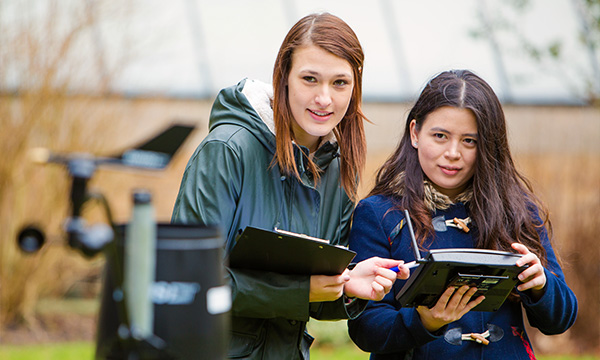
You can also apply for a PhD from one of the Doctoral Training Centres and Partnerships that work with the Graduate School for the Environment. Details of each of the Training Centres are provided here.
